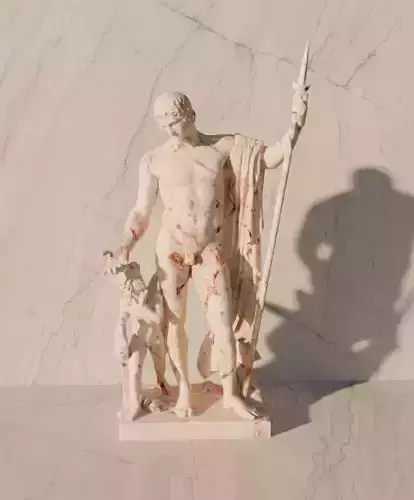Under the influence of Greek culture, Mars was identified with the Greek god Ares, whose myths were reinterpreted in Roman literature and art under the name of Mars. The character and dignity of Mars differs in fundamental ways from that of his Greek counterpart, who is often treated with contempt and revulsion in Greek literature. Mars's altar in the Campus Martius, the area of Rome that took its name from him, was supposed to have been dedicated by Numa, the peace-loving semi-legendary second king of Rome; in Republican times it was a focus of electoral activities. Augustus shifted the focus of Mars' cult to within the pomerium, and built a temple to Mars Ultor as a key religious feature of his new forum.



